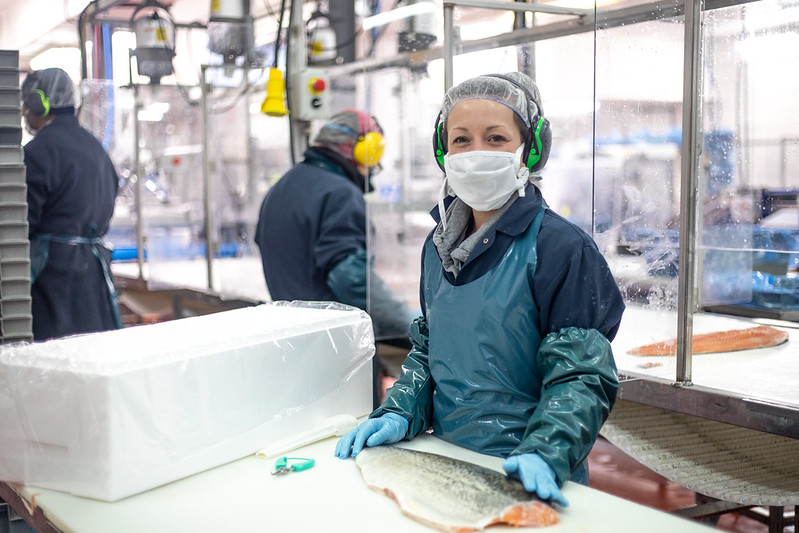BAP Certification Program Grows 29 Percent in 2018
It’s official. The industry-leading Best Aquaculture Practices (BAP) third-party certification program closed out 2018 on a high note, finishing up the year with 2,287 BAP-certified facilities worldwide.
Of the 2,287 BAP-certified facilities, 1,534 are farms, 370 are processing plants, 45 are re-processing plants, 220 are hatcheries and 118 are feed mills. Additionally, there are 245 farms that were previously BAP-certified but are currently in fallow. The 1,500-plus farms represent more than 1.5 million metric tons of production annually.
Demonstrating the industry’s long-term commitment to responsible aquaculture, the BAP program has more than tripled in size in the past four years, growing from about 700 BAP-certified facilities by the end of 2014 to 1,500-plus facilities by the end of 2016 to 1,778 facilities by the end of 2017.
As far as geographical reach, the BAP program is closing out 2018 with certified facilities in 33 countries on six continents, representing an impressive 29 species (abalone, barramundi, bream, carp, catfish, char, clams, cobia, crab, crawfish, grouper, milkfish, mussels, oysters, pangasius, pomfret, pompano, red drum, salmon, scallops, seabass, seriola, shrimp, snapper, striped bass, sturgeon, tilapia, trout and turbot).
Additionally, 195 facilities are capable of offering four-star BAP product, meaning that the product originated from a BAP-certified processing plant, farm, hatchery and feed mill. It’s the highest designation in the BAP program.
“The BAP program took the needs of the marketplace for confidence in food safety, environmental impact, social responsibility and animal welfare and applied them to each stage of the aquaculture value chain. This end-to-end approach, with a broad assessment of risks, is unique but is also backed by the extensive membership and advocacy support of GAA. More and more partners are seeing the value of this program compared to stand-alone certifications, and we look forward to continuing to help grow the market for responsibly sourced seafood,” said Andrew Mallison, executive director of the Global Aquaculture Alliance, which administers the BAP program.
There were multiple firsts for the BAP program last year, including the world’s first BAP-certified recirculating aquaculture system and seriola farm, first company to offer four-star BAP Mediterranean sea bass and sea bream, first company to offer four-star BAP king salmon, first Scottish company to attain BAP certification (for Atlantic salmon), first pet food product to carry to BAP label, first company to offer four-star BAP oysters, first BAP-certified mussel farm in Europe, and first BAP products (tilapia and pangasius) to be promoted in the Japanese market.
BAP is the world’s most comprehensive third-party aquaculture certification program, with standards encompassing environmental responsibility, social responsibility, food safety, animal health and welfare, and traceability. The BAP program covers the entire aquaculture production chain – processing plants, hatcheries, farms and feed mills. Additionally, the program is compliant with the Global Food Safety Initiative (GFSI), Global Social Compliance Programme (GSCP) and Global Sustainable Seafood Initiative (GSSI).
About BAP
A division of the Global Aquaculture Alliance, Best Aquaculture Practices is an international certification program based on achievable, science-based and continuously improved performance standards for the entire aquaculture supply chain — farms, hatcheries, processing plants and feed mills — that assure healthful foods produced through environmentally and socially responsible means. BAP certification is based on independent audits that evaluate compliance with the BAP standards developed by the Global Aquaculture Alliance.




